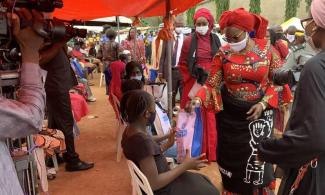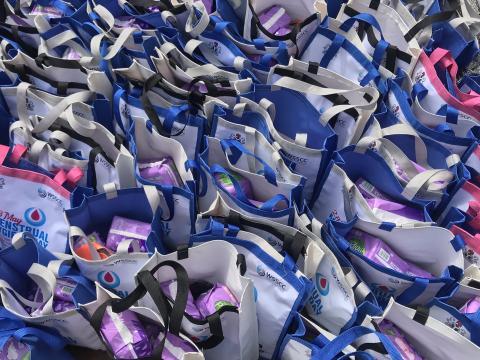
Minister of Women Affairs, Dame Pauline Tallen, while inaugurating the project at Kado Village, Abuja, lamented lack of access to menstrual health and hygiene products, education and sanitation facilities among vulnerable women and teenage girls.
Nigeria’s Ministry of Women Affairs has embarked on a project to distribute about one million sanitary pads to women and teenage girls across the country in order to cushion the effect of COIVD-19.
Minister of Women Affairs, Dame Pauline Tallen, while inaugurating the project at Kado Village, Abuja, lamented lack of access to menstrual health and hygiene products, education and sanitation facilities among vulnerable women and teenage girls.
She disclosed that each beneficiary would receive at least four packs of sanitary towels.

She said, “This project is hinged on the fact that girls’ and women’s choices of menstrual hygiene materials are often limited by costs, availability and social norms.
“Therefore, providing access to menstrual hygiene products will go a long way to solve the problem to a great extent.”
Tallen applauded the First Lady, Aisha Buhari, for supporting Nigerian women and girls while also thanking Procter and Gamble for providing 4000 sanitary towels for the first phase of the project.

While acknowledging that COVID-19 pandemic had further worsened access to menstrual management materials, Elizabeth Jeiyol, Water Supply Sanitation and Collaborative Council National Coordinator for Nigeria, urged all stakeholders to team up to change the negative social norms surrounding menstruation so that women and girls can practice menstruation in dignity.
Chizoma Opara, Acting Coordinator of the “Clean Nigeria” campaign, stressed the importance of institutionalising menstrual health and hygiene management at all levels in Nigeria.
She added that this can be achieved by putting an end to open defecation in Nigeria through the provision of hygiene facilities for the populace particularly women during menstrual period.